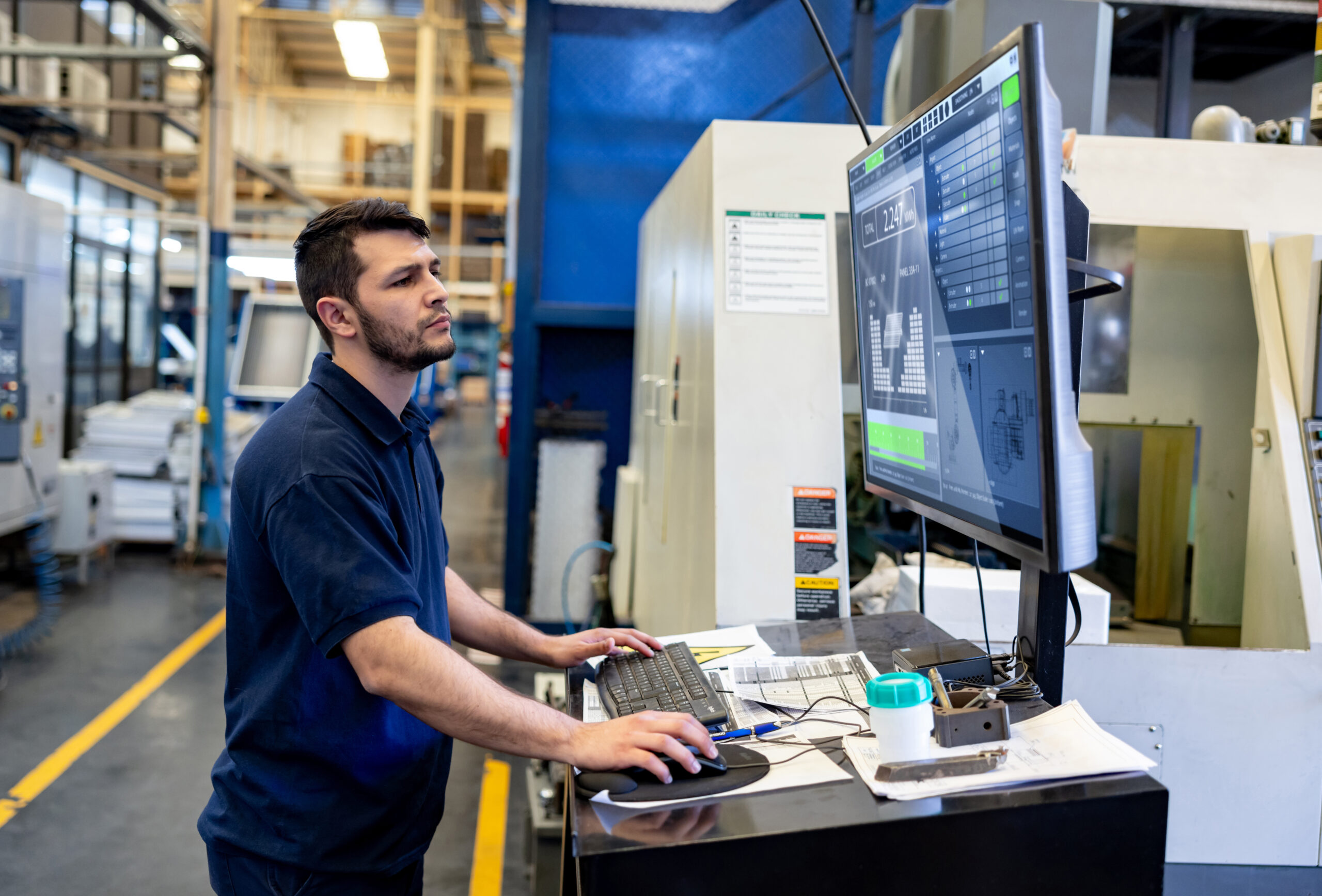
Industry 4.0, smart factories and the Internet of Things (IoT) are terms that we hear all the time floating around the manufacturing industry. But what do they actually mean? And more importantly, how will they impact you as a custom manufacturer?
What is Industry 4.0?
Industry 4.0 is the term that is used to refer to the fourth industrial revolution that many experts believe we are currently going through. (The previous upheavals that have changed the face of the manufacturing industry are the mechanization through water and steam power that came in the first industrial revolution, the mass production and assembly lines in the second, and the digital revolution, or the adoption of computing technologies and automation, in the third.) Industry 4.0 is being driven by trends such as the increasing levels of digitization, automation, and inter-connectivity in the manufacturing sector. Other factors such as the emergence of greater analytics and business-intelligence capabilities, advances in artificial intelligence, as well as the continued development of the Internet of Things (IoT) are also driving the change.
Industry 4.0 is a continuation of the previous digital revolution, but experts believe that the kind of digital transformation that we are going through, one that involves the “blurring [of] the lines between the physical, digital and biological spheres,” according to Klaus Schwab, founder and executive chairman of the World Economic Forum (WEF) and author of the 2016 book The Fourth Industrial Revolution, is so dramatic and happening so quickly, that we are, in fact, in the midst of another industrial revolution that is transforming the manufacturing industry.
The digital revolution that first started to disrupt the manufacturing industry in the late 1960s introduced computers, a completely new technology that changed how manufacturers did business. But now, new technologies, such as the Internet of Things (IoT), big data, cloud computing and cognitive computing have vastly increased the connectedness of computing technology, and are changing the game again. Presently, and into the future as Industry 4.0 unfolds, computers are connected and communicate with one another to ultimately make decisions without human involvement. Perhaps Forbes summed it up best: “Industry 4.0 optimizes the computerization of Industry 3.0.”
Now is the time to take this new industrial revolution seriously, and start thinking about how it will impact your business. According to Deloitte “Overall, just over 20 percent of manufacturers rated themselves as ‘highly prepared’ to address the emerging business models the fourth industrial revolution brings. The coming year is one that is expected to separate the digital leaders from the followers, and it could leave some companies dangerously behind.”
Embracing new digital technology will be an important feature in determining which manufacturers emerge strong and competitive, and which lag behind in the new world of Industry 4.0. Start to prepare now.
How can manufacturers prepare for Industry 4.0?
Get comfortable with big data.
Learning how to collect, but also transfer, store and analyze data is one of the biggest things that manufacturers can do to prepare for Industry 4.0. As data is one of the key drivers behind Industry 4.0, learning how to harness the data that you already have coming in, will set you up to deal with future trends and technologies.
Forbes predicts that by 2020 spending on IoT technologies, solutions and apps will reach 267 billion USD, with much of this boom in spending coming from the manufacturing industry, as manufacturers continue to digitally transform and connect their business processes. Expect everything from shop floors to supply chains to become more connected, helping manufacturers to increase efficiency and productivity — meaning you need to start embracing connectivity and data now.
If you are using an ERP to manage your custom manufacturing shop, you already have access to connected real-time data for your shop. Unfortunately, when it comes to analytics, many factories still rely on manual processes and Excel spreadsheets to determine asset availability, draft maintenance schedules or make critical decisions. An integrated solution like an ERP will connect your shop and give you better control over your data, and the important business processes and decisions that rely on it, making your shop run smoother and more efficiently.
Learning to use business intelligence to sift through and analyze your data will help you become a more efficient, leaner and more productive organization — and help you prepare for the coming digital revolution. Your data can show you where there are gaps or inefficiencies in your production line, and help you improve your manufacturing processes.
If you have an ERP system, you already have a built-in central repository for all of your data, making it easy for you to begin to use business intelligence to improve your operations. In the past manufacturers needed to comb through numerous spreadsheets and systems to pull out relevant data, and then analyze the data to create meaningful reports and actionable items. But an ERP makes it simple, as it can sift through your data for you, and create customized reports that let you better understand your organization and manufacturing processes — and make better decisions.
Using business intelligence to improve your operations can have a major impact on your bottom line. ERP software that provides accurate, real-time information about daily operations help companies reduce operational costs by 23% and administration costs by 22% (Source: Aberdeen Group). To learn more, check out these how to harness your real-time data and the power of business intelligence for manufacturersundefined.
Many manufacturers have been sitting on reams of data coming out of their machinery and systems for years, but didn’t know what to do with it. Learning how to use this data to create a more efficient, a smarter factory, is what Industry 4.0 is all about. Greater connectivity and analytics will help you to avert quality issues, improve efficiency and increase throughput. Getting comfortable with data today will help prepare you to use the connected technology that will come with Industry 4.0.
Get your eBook Scared to implement a new ERP?
"*" indicates required fields



